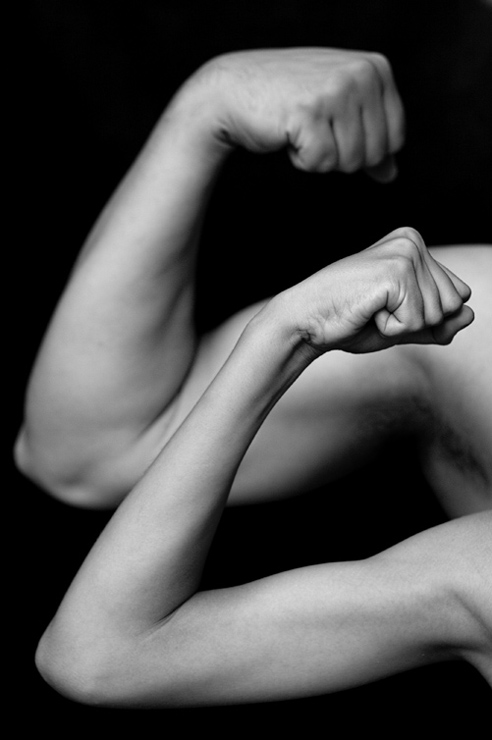Here at Peaceful Dumpling, you’ll be hard-pressed to find a scrap of evidence that a vegan or plant-based diet will cause protein deficiency. In addition to celebrating the many delicious and protein-packed options there are for vegans in our recipes, we even have written about how to answer those dubious relatives’, coworkers’, or anyone else’s classic reply your being vegan: where do you get your protein?
But as we know, things are usually much easier said–or blogged about–than done, and even if you’re fully aware of how to get your protein doesn’t mean you’re hitting your personal mark. Maintaining a balanced diet is crucial across all food groups, but when your lifestyle explicitly excludes the main sources of protein in our culture–meat and dairy–as a vegan you have to sometimes be especially cognizant of your protein intake. Eating out at restaurants for business or pleasure, holidays, and any unfamiliar food situation runs the risk of leaving a vegan with the options of pasta, watery iceberg lettuce (no dressing), or . . . that’s right, more pasta.
Everyone has a unique daily protein requirement, but no matter what your body needs here are tell-tale signs of when you’re heading toward, or are already far along, this slippery slope of protein deficiency. And they’re probably not what you think. Read on to know what you should stock up on the next time you buy groceries.
1. Sweet Tooth: Protein and carbs are nutritional BFFs–without one another, they go sorta crazy. (This is why high-protein or high-carb diets are never a good idea.) One of the functions of protein is to regulate blood sugar over time, and when there isn’t enough protein your glucose levels can spike and fall rapidly. Eating a huge bowl of pasta without a protein pairing will cause your body to use up that sugar fast–because that’s all it has to work on–and within a few hours you’ll be reaching for the quickest carb reload nature provides: candy and sweets. An occasional urge for chocolate or your favorite dessert is fine to indulge, but if it happens regularly consider what your protein-carb balance has been lately, and start planning more reunions between those friends.
2. Changes in Mood and Focus: Related to the carb-regulation function of protein, lacking in the latter won’t allow your brain to access the sugars it needs in a consistent way and keep you on your mental toes. You may feel like your head is in a fog or faint, experience headaches, and/or generally irritable, anxious, and depressed/low energy.
3. Physical Weakness: Proteins are the building blocks of muscle itself, so without a steady intake of new proteins your body can’t replenish what it burns off when you’re walking around, working out, carting home an armload of groceries, or generally existing (remember your heart is a muscle that pumps tiny blood cells around your innards–all day long). As a result, the body starts to feed off itself and deplete its store of muscle tissues. You’re not as strong as you used to be and may find activities you used to be able to do more difficult.
4. Hair, Skin, and Nail Weakness: Both are made of proteins, so like muscles they start to break down without regular consumption. Hair can begin to get dry and brittle or prone to breaking, losing volume and luster overall. Your complexion can loose its natural glow (no matter how much highlighter you use) as the blood supply to the skin drops off. If your nails are similarly brittle and cracking or if you have vertical ridges, you might have a current protein deficiency; horizontal ridges would reflect a healing deficiency.
5. Weak Immunity: Feeling sick all the time? Your body may be having trouble fighting off diseases and infection because of low protein. Immune cells are protein-based, so without proteins the active and reserved immunity forces lose their potency.
In case you need a reminder, here are some top vegan protein choices:
– Fermented soy products (tofu, 5 grams per 1/2 cup; miso, tempeh, 15 grams per 1/2 cup)
– Legumes and beans (lentils, peas included; 7 grams per 1/2 cup)
– Nuts (almonds, cashews, pistachios, and peanuts are best, with 6-7 grams per 1/4 cup)
– Nut butters (~8 grams/2 T.)
– Nutritional yeast (6 grams per 1/4 cup–plus tons of vitamin B12)
– Soy milk (8 grams per 1 cup; other non-dairy milks like almond and hemp aren’t great sources of protein on their own)
– Quinoa (a complete protein, with 12 grams per 1/2 cup)
What are your favorite ways to get protein?
Also by Jennifer: Green Buckwheat Bowl for the Heart Chakra
5 Things I Learned from the Goop Cleanse
Related: Protein for Vegan Athletes: Know Your Optimum Range
Love this article? Keep up-to-date on the latest from Peaceful Dumpling: Subscribe to our Newsletter!
Photos: Victor Bezrukov via Flickr

